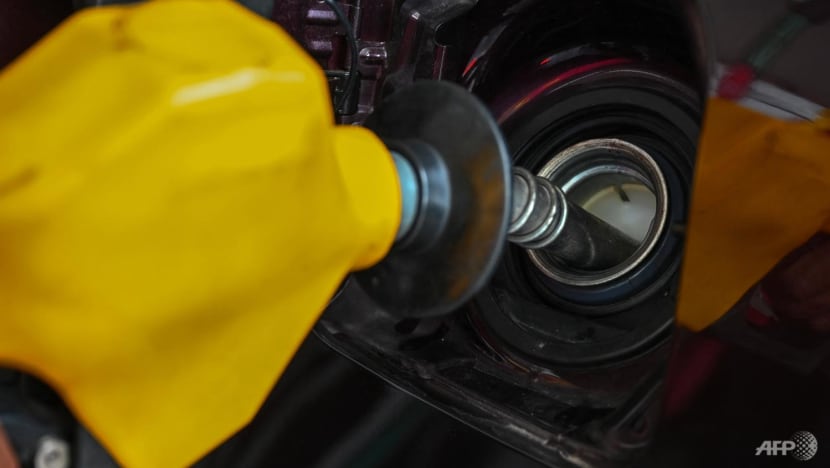Government will review fuel retail market to see if there are other ways to alleviate prices

A worker fills up a car with petrol at a petrol station in Singapore on Apr 7, 2022. (Photo: AFP/Roslan Rahman)
SINGAPORE: The Government will review the fuel retail market to determine if there are other ways to alleviate the pressure on fuel prices, Minister of State for Trade and Industry Low Yen Ling said in Parliament on Tuesday (Jul 5).
“We will continue to monitor the situation and will not hesitate to provide more assistance if required,” she said.
Ms Low was responding to a question by MP Don Wee (PAP-Chua Chu Kang), who asked if the ministry will regulate petrol and diesel pump prices amid record profits for oil companies.
She said the review will cover how global developments, as well as the practices of Singapore's fuel retail operators, have led to the pricing trends seen so far.
"Now to support this study, CCCS (Competition and Consumer Commission of Singapore) has got in touch with the retail fuel operators for data on the fuel price movements," she said.
"If the findings of the review suggest that there are ways to improve the fuel retail market, I want to assure the member that the Government is certainly open to considering all measures that could enhance the effectiveness of the fuel retail market," she added.
Fuel prices have risen in recent months, driven by higher demand for global crude oil as economies reopen, and constrained supplies due to sanctions against Russia. There has also been an under investment in fossil fuel production over the years, she said.
According to fuel price comparison website Fuel Kaki on Tuesday, the most popular 95-octane grade petrol was going at a range of S$3.31 to S$3.35 a litre, soaring from less than S$3 in early March – days after Russia invaded Ukraine.
In June, Deputy Prime Minister Lawrence Wong announced support measures for self-employed persons whose livelihoods depend on their vehicles, including a one-off relief of S$150 in August for eligible taxi main hirers and private hire car drivers.
Drivers of combi buses and limousines who are members of the National Private Hire Vehicles Association, as well as delivery drivers and delivery motorcycle riders who are members of the National Delivery Champions Association, can also apply for a one-off cash relief of up to S$300 next month.
“Regulating or capping petrol or diesel pump prices will distort the market and serve to benefit car owners, especially those who consume more, who may include more well-to-do users,” Ms Low said.
“It will also reduce the incentive for Singaporeans to switch to more energy-efficient modes of transport. Instead, the Government’s approach is to ensure that we have a competitive fuel retail market.”
Mr Wong made a similar explanation in his ministerial statement in Parliament in April. He said reducing or suspending fuel duties would effectively amount to a subsidy on private transport and will have “counter-productive effects”.
The CCCS monitors the fuel market closely and will not hesitate to investigate the practices of the retail operators, Ms Low said, adding that “firm enforcement actions” will be taken against anti-competitive behaviour.
“I also encourage motorists to make use of the Fuel Kaki website, developed by the Consumers Association of Singapore, to compare the effective price of petrol and diesel across retailers, including the various discounts and rebates being offered,” she said.
MP Joan Pereira (PAP-Tanjong Pagar) also asked if the Government will consider setting up a cooperative to supply petrol to help moderate the costs of fuel.
A cooperative is a group of customers, including government agencies with vehicle fleets, that combine their buying power to negotiate lower prices with dealers.
Ms Low said retail pump operators, including cooperatives, that want to supply fuel to independent motorists will need to operate at sites that are suitable for such purpose, including the need to comply with prevailing environmental, fire safety and other requirements.
“Such sites are identified and allocated via competitive tender from time to time. So, a cooperative may not be able to offer lower pump prices unless they can secure lower-cost supplies,” she added.
















